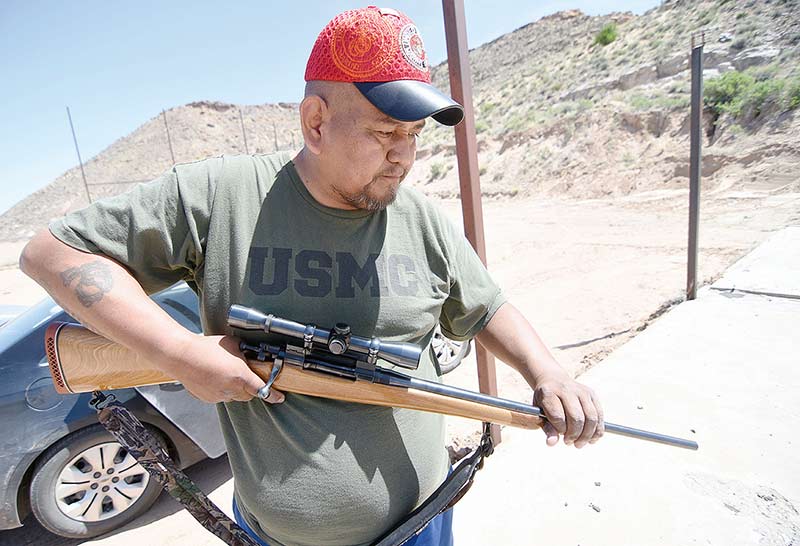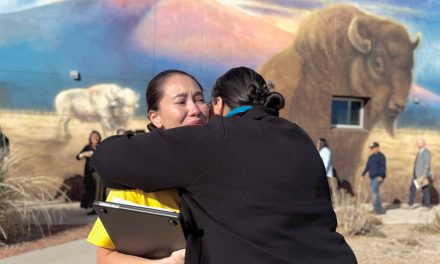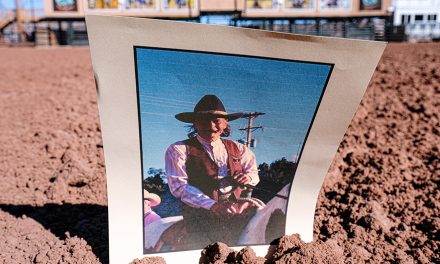
Kayenta opposes Utah delegate’s gun bill

Navajo Times | Donovan Quintero Navajo Nation Council Delegate Filfred Davis talks about his rifle, a 30-06 Springfield bolt action, Saturday in his hometown of Aneth, Utah.
WINDOW ROCK
Navajo Nation firearm law guarantees Navajo citizens a right to bear arms, which includes using it during traditional ceremonies, having one in your home and carrying an unloaded one in your vehicle.
But that’s not the issue, said the Kayenta Township, and their concerns were about the how the bill’s language sounded like the beginning of gun control and confiscation.
At a Kayenta Township town hall meeting on May 4, citizens voiced their concerns against Navajo Nation Council Delegate Filfred Davis’s firearms bill that would require individuals residing on the Navajo Nation to register their firearms with Navajo police.
According to the bill, anyone living on the reservation would be required to register their firearms with Navajo police within 180 days.
The registry, which would become known as the Firearms Registration and Transfer Record, would also require a firearms owner to provide proof they own the gun, their current address, and an identification of the firearm through a serial number.
Opponents who spoke at the meeting said Filfred’s bill violated their constitutional rights.
They also said there were more important problems the reservation faced such as the illegal selling and use alcohol and drugs. Those were more important than being required to register their firearms, they argued.
Shoni De La Rosa of Kayenta opposed the bill, stating that gun control was not the answer because it would only do more harm for law abiding gun owners in the long run.
Additionally, he said, alcohol and drugs were responsible for more crimes and deaths than guns on the reservation.
“That should be top priority – not firearm registration,” De La Rosa said. “Where I live is a crazy place. I can throw a rock and easily hit a bootlegger’s or a drug dealer’s house. Easy.
“My home has been broken into home many times,” he said. “I have bars on all my windows and doors as a result.”
De La Rosa added that the Navajo Tribe didn’t contribute to the system that is used to check a person’s criminal background when they’re in the process of purchasing a firearm. He said that while states, counties and cities contributed to a person’s criminal history, the tribe didn’t.
And in terms of spending and costs needed to create a gun registry database, De La Rosa argued that it would be far cheaper to simply contribute to the system that’s already in use.
“When we purchase any type of firearms, we go through a background check and that contains all information any crimes anybody may have done,” he said. “It’s cheaper, easier, and would make larger impact than this gun registry bill.”
Kaibeto community member Nelson Bates also opposed the bill.
To read the full article, pick up your copy of the Navajo Times at your nearest newsstand Thursday mornings!
Are you a digital subscriber? Read the most recent three weeks of stories by logging in to your online account.








 Highway 264,
Highway 264, I-40, WB @ Winslow
I-40, WB @ Winslow